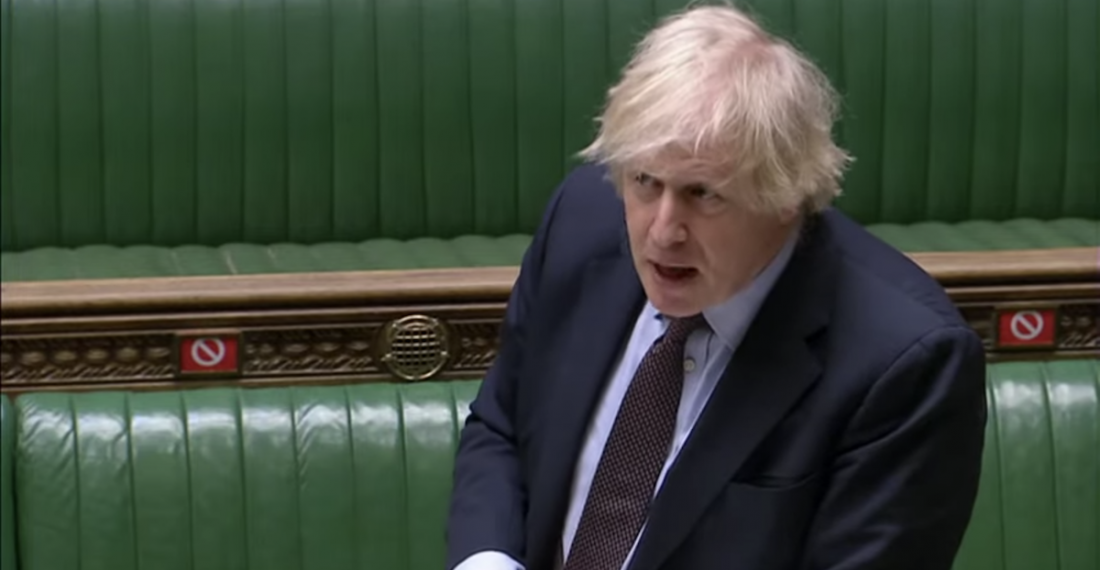Boris Johnson, the prime minister of the United Kingdom, has today (16 March) published an Integrated Review of Security, Defence, Development and Foreign Policy outlining the UK’s post-Brexit direction of travel. Within the document titled, ‘Global Britain in a Competitive Age’, the prime minister refers to Britain’s departure from the EU as “a unique opportunity to reconsider many aspects of [the UK's] domestic and foreign policy, building on existing friendships but also looking further afield.”
The 114-page document identifies Russia as “the most acute direct threat to the UK” in reflection of its increased hybrid warfare tactics. Whilst it pays respect to Russia’s people, history and culture, the document conveys the government’s intention to “deter and defend against the full spectrum of threats emanating from Russia”. The report further highlighted that NATO is “the foundation of collective security in the Euro-Atlantic area” and the UK’s “most powerful deterrent”. Johnson reiterated that it will work with NATO to ensure “a unified Western response [to Russia], combining military, intelligence and diplomatic efforts”.
Conversely, China is referred to as a “systematic challenge … to [the UK's] security, prosperity and values”. The report, however, suggests that the UK would “continue to pursue a positive trade and investment relationship with China, while ensuring [the UK's] national security and values are protected”. Tobias Ellwood MP, the governing Conservative party’s chair of the UK’s defence committee, expressed concern that China was “still not seen as a geo-strategic threat but a competitive trading partner”.
Welcome INTEGRATED REVIEW today
— Tobias Ellwood MP (@Tobias_Ellwood) March 16, 2021
- an ambitious new chapter for UK on the global stage.
Two concerns:
👉 CHINA: still not seen as a geo-strategic threat but a competitive trading partner.
👉 LOSS OF HARD POWER: arrival of new threats does not mean old ones have disappeared. pic.twitter.com/n2tXHlDemU
In addition, despite the document confirming the British government’s perspective of the US as its biggest ally, the nuanced language in relation to China is unlikely to please the Biden administration, which has emphasised the need for a much tougher approach towards the emerging Asian superpower. This partially explains the document's emphasis on a refocusing of UK foreign policy in the Indo-Pacific region. This “Indo-Pacific tilt” aims to tackle the region’s transformation into “the crucible for many of the most pressing global challenges – from climate and biodiversity to maritime security and geopolitical competition linked to rules and norms.” The ‘tilt’ is outlined as growing economic, climate and cybersecurity co-operation and increasing military presence.
The UK’s future relationship with the European Union as a bloc receives considerably less airtime, with the EU given brief credit for its “important role in … the peace and prosperity of Europe”, and the general sentiment expressed of working together on “security and defence … where this is in our interest.” It also mentions that the UK will support co-operation between NATO and the EU. The document does, however, speak more about the UK’s bilateral relationships with a number of EU member states, referring to its “deep and long-standing security and defence partnership with France”; Germany as “an essential ally”; the country’s commitment "to a strong bilateral partnership" with Ireland; and its “close partnership” with Italy, with Spain, Portugal, the Netherlands, Denmark and Sweden referenced as partners. The review also confirms UK’s support for the countries of the Eastern Partnership, and particularly Ukraine.
Controversially, the document announces a considerable increase in the UK’s nuclear stockpile. The cap on the number of nuclear warheads that the UK can stockpile will be increased from 180 to 260, “in recognition of the evolving security environment”. Some have noted that this somewhat undermines the review’s simultaneous commitment to the “full implementation of the NPT [Non-Proliferation of Nuclear Weapons Treaty]”, and its claim that, “there is no credible alternative route to nuclear disarmament”.
The extensive document additionally places emphasis on the importance of Science and Technology for the UK’s future, an extensive reform of the British armed forces – with a particular emphasis on cyber capabilities – and highlights the ongoing threat of terrorism on UK soil, amongst other things. The full Integrated Review can be accessed here.






